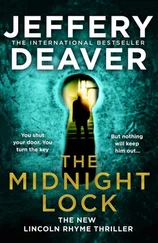“And the expansion continues: A few years ago, we had the ‘Citizens United’ case. The Supreme Court ruled that corporations had a First Amendment right, just like humans, to make campaign contributions.
“Some think the decision might open the door for corporations to do more than just exercise freedom of speech.” Field browsed his shelves and lifted a Supreme Court Reporter , a large hardcover bound in yellow, and thumbed through the densely packed pages. “I’m going to read you something. This is from Justice Stevens’s dissent in ‘Citizen’s United.’
“‘Corporations have no consciences, no beliefs, no feelings, no thoughts, no desires... They are not themselves members of “We the People” by whom and for whom our Constitution was established... At bottom, the Court’s opinion is thus a rejection of the common sense of the American people, who have recognized a need to prevent corporations from undermining self-government since the founding, and who have fought against the distinctive corrupting potential of corporate electioneering since the days of Theodore Roosevelt.’”
Field closed the book.
Shaw said, “So, some sharp lawyer might claim that holding office is a form of expression and a First Amendment right.”
“Oh, I could see that argument being made. There’d be others too.” He looked at Russell. “So would it be struck down? Who knows? But I guarantee that Devereux’ll throw massive amounts of money into lobbying for his side. I wouldn’t put it past him to bribe or threaten to make sure the amendment stands.”
That would be just the job for BlackBridge.
“And this is only the start. Devereux has to have plans to move into other states too.”
“The man who would be king,” Shaw said. Russell caught his eye, nodding.
Before they left the Bay Area for the media-free Compound, the young brothers had watched television. One night they’d seen an old movie, The Man Who Would Be King . Based on a Rudyard Kipling novella. It was about a couple of former British soldiers who set off to India and Afghanistan, aspiring to become just what the title suggested.
“That’s Devereux,” Field muttered.
Russell said, “We know what his agenda is too — his company gets elected.”
Shaw recalled the memos in the courier bag: legislation and regulations to eliminate protections on the environment, banking, working conditions, civil rights. They hadn’t made much sense at the time. Now the purpose was terribly clear. He explained this to Field, who took the news with an expression of disgust.
“Our country’s two hundred and fifty years old. That’s a long time by some standards. No country lasts forever, and there have been more governments overturned from within than by invasions.” A scornful look at the tally.
Shaw slipped it into an envelope and placed that in his backpack.
“What...” Field cleared his throat. “What are you going to do with it?”
Shaw had not yet thought about this. He glanced at his brother, who shrugged.
Field walked them to the rear door. Before he opened it, he eyed Shaw closely, then Russell. His eyes were focused. His brows furrowed. “Does Devereux know you have it?”
“Not for certain.”
“Then I see you have two options. One: Convince him that you never unearthed it. Hide it somewhere. Pray he gives up looking and never finds it.”
“What’s the other option?”
“It’s an amendment that passed, yes. But I imagine that the people wouldn’t have voted for it if they’d known the truth. So, I say: as Americans and lovers of democracy, you should light a bonfire and throw the damn thing in.”
North Beach.
This neighborhood, the jewel in the crown above Chinatown, was one of the main Italian American portions of the city. The seashore part of the name came from one end of the district, the Barbary Coast, maybe the most notorious red-light district of any city along the Pacific coastline.
More sustaining was the Bohemian culture that developed in the 1950s and early ’60s. North Beach was folk music at the hungry i and pot and Mad magazine wit. It was the half-century-old City Lights bookshop, owned and managed by poet Lawrence Ferlinghetti, making it the epicenter of the Beat movement. It had a tastefully risqué side too. North Beach was home to the Condor Club, a gentlemen’s establishment that morphed through many iterations and was known internationally as the venue were the famed Carol Doda performed.
Shaw paused at the crest and caught his breath. Grant was not the steepest street in hilly San Francisco but it was one of them. He turned to his right and continued several blocks until he came to a storefront, Davis & Sons Rare Books and Antiquities.
Walking inside — his presence announced by an actual bell, mounted to the door — Shaw was greeted with a smell that took him back immediately to the wilderness cabin where he and his siblings had grown up. In the escape from the Bay Area to the Sierra Nevadas, Ashton and Mary Dove had carted with them a ton — quite literally — of books of all sorts. Hardbound mostly. That perfume of paper, cardboard, leather, glue and must was unforgettable and present in abundance here.
He looked around the large, jam-packed store. Every shelf was filled with volumes, organized according to curious categories.
Fiction, Scottish, 1700–1725
Nonfiction, British Literary Criticism, 1800–1810
Poetry, Caribbean, 1850–1875
On and on.
A young man behind the counter was on the phone and he smiled at Shaw and held up a just-be-a-sec finger.
Shaw nodded and browsed. In addition to books the store also offered writing and drawing implements and supplies going back hundreds of years. He walked to a case in which were fountain pens, holders and nibs, even quills. Antique notebooks too, early-era versions of the one he’d used in his meeting with Maria Vasquez in the reward job to find Tessy.
The man hung up and joined him.
“Hi.”
Shaw nodded. The shop was Dickensian, to be sure, but the clerk wasn’t Oliver or Pip. His stylish hair was moussed up, he bore an earring, and if his white shirt, floral tie and black slacks had been purchased with proceeds from the shop, then the antiquarian book business was doing exceedingly well.
“You interested in anything in the case?” He produced a key.
“I might be. But first, I’m interested in framing.”
From his backpack he extracted a manila folder. Inside was a sketch he had drawn of Sierra Nevada mountain peaks as seen from Echo Ridge. He’d inherited his father’s penmanship and skills at cartography, so he was not a bad artist.
Donning white cloth gloves, the man picked it up. “Not bad.”
He turned it over, glancing at the typewritten words on the back.
In the matter of the Voting Tally in the Twelfth Congressional District, regarding Proposition 06, being a referendum put before the People of the State, I, the Right Honorable Selmer P. Clarke, Superior Court, do find as a matter of fact the following:
“Oh, that’s nothing. Some scrap paper my father found at work and did the sketch on.”
The Maybe-Davis turned it over without finishing the earth-shattering words.
He then took a loupe and examined the sheet. Finally he set it down. “You want it framed but also protected.”
“Do I?”
“Of course you do. Now, before the mid — eighteen hundreds, most paper was made from cloth, usually by mechanical means. This meant that the stock was composed of long fibers. It was strong and chemical free. After that, manufacturing shifted to chemical pulping and the use of alum-rosin sizing — that led, of course, to sulfuric acid. Then too you’ve got your nitrogen oxides, formic, acetic, lactic and oxalic acids. Generated by cellulose itself. And, heavens, we haven’t even gotten to pollutants in the air and the water in the factory.”
Читать дальше
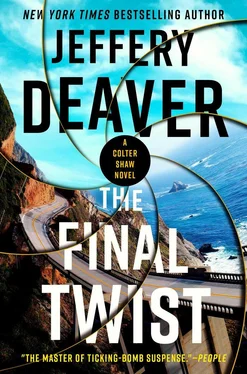
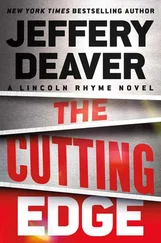

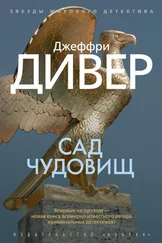

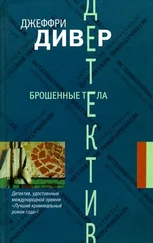
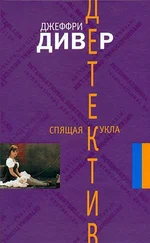
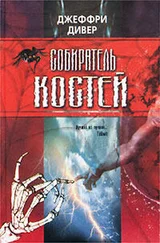
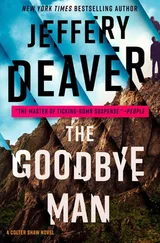
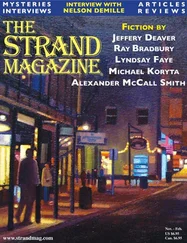
![Джеффри Дивер - Where the Evidence Lies [A Lincoln Rhyme Short Story]](/books/403782/dzheffri-diver-where-the-evidence-lies-a-lincoln-r-thumb.webp)

